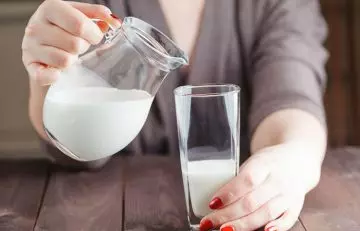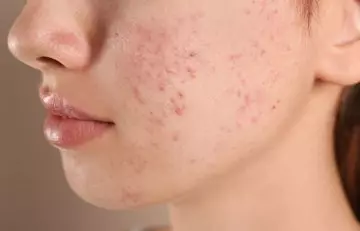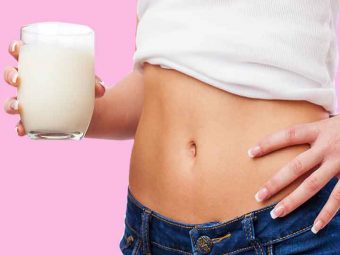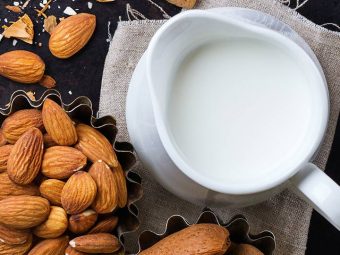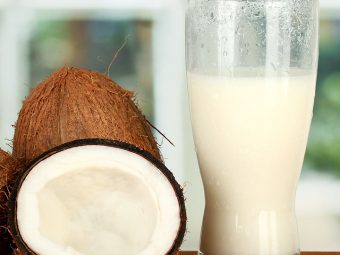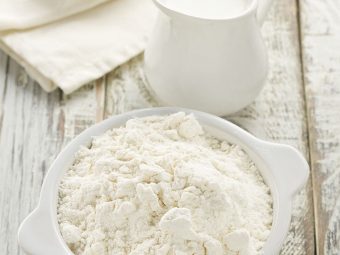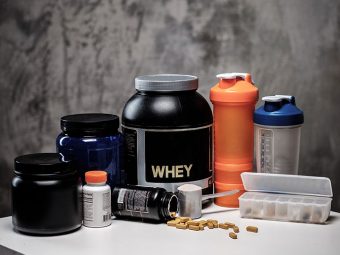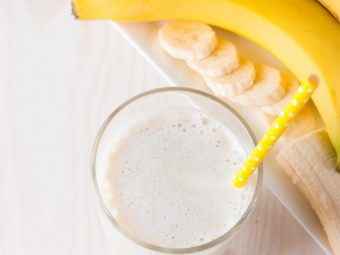Is It Safe For Adults To Consume Milk If They Are Not Lactose Intolerant?
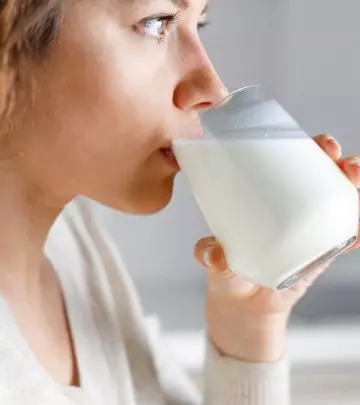
Image: Shutterstock
For thousands of years, cow’s milk has been a staple in the human diet. Milk is still consumed by many, despite assertions that it may have negative health effects. But in contrast, there are also many studies indicating that dairy products are beneficial to our health. So, how to know if you should keep drinking milk as adults or if it is better to cut back? We researched the benefits and drawbacks of milk consumption to let you know when it’s best to skip it. Read on to know more.
In This Article
Advantages Of Drinking Milk Everyday
There are several health advantages to drinking milk. Vitamins and minerals, such as phosphorus, zinc, copper, calcium, vitamin A, and indeed the B-complex, may be found in abundance in milk. Bones and teeth benefit from it. Around 30 percent of an adult’s recommended calcium intake may be found in just one cup of milk. Vitamin D, which is commonly added to milk, aids in the body’s use of calcium and the mineralization of bone tissue. One cup may provide as much as 20% of the recommended daily allowance. The benefits to the cardiovascular system are clear. Drinking whole milk has been shown to reduce the risk of cardiovascular disease by raising levels of “good” cholesterol. Milk, among other things, is a fantastic potassium supplier. Blood pressure is lowered and kept in check by this mineral, and it also aids in maintaining a healthy weight.
In What Cases Should You Stop Drinking Milk
While drinking milk generally has positive effects on health, there are rare exceptions. Read on to know them all.
1. Acne May Be Exacerbated By Milk
According to research, people between the ages of 7 to 30 who consume dairy may be more likely to develop acne. However, the authors stress that because of the initial data’s variability, a definitive link between milk consumption and acne development has not been established.
2. Milk May Trigger Allergies
The prevalence of cow’s milk protein allergy among children is determined by the World Health Organization to range from 1.9% to 4.9%. Although the response is most common during the first twelve months of life, it can happen at any time. It is possible, for instance, for an adult who has never had difficulty with milk to acquire an allergy to it later in life. Itching, redness, stomach discomfort, numbness or swelling of lips, throat, or throat, a runny nose, & watery eyes are all signs of an allergic reaction. If they manifest, prompt medical attention is required.
3. It May Cause Lactose Intolerance
The inability to break down lactose, a sugar found in milk and other dairy products, is a common digestive problem. Although this disorder can manifest at any age, it often appears in those between the ages of 20 and 40. After a few hours of ingesting dairy products, you may experience bloating and abdominal pain. If you feel you have lactose intolerance, you should see a doctor, just as you would if you had an allergy.
When Should You Stop Drinking Milk
Your doctor may advise you to keep track of whether or not your acne worsens after you consume dairy products. If you have any suspicions, you might try going without milk for a while and see if it helps your skin. Your doctor can order allergy testing if they believe you have the condition. They will be able to clarify that the allergy symptoms you’re experiencing are caused by consuming milk or something else entirely. You should see a doctor if you have any concerns about a possible lactose intolerance. If they think your symptoms are related to dairy consumption, they may suggest cutting off dairy to see if it helps. Once the confirmed diagnosis is made, cutting back on dairy is often helpful in managing symptoms.
Substitutes For Milk
If your doctor advises you to avoid dairy, you may look for suitable substitutes. There are dairy alternatives that don’t include lactose, such as soy milk. They are almost nutritionally equivalent to regular dairy products. They’re also fortified with lactase, an enzyme that aids in the breakdown of milk sugar and reduces the likelihood of uncomfortable side effects.
Don’t cut off dairy products and milk from their diet without first talking to your doctor, since they are a good source of essential nutrients. A calcium shortage is possible if dairy products are eliminated for no good reason. And this can lead to issues with your bone and tooth health. So, what is your favorite dairy product? Let us know in the comments section!
Sources
- Milk and dairy products: good or bad for human health? An assessment of the totality of scientific evidence, NCBI
- Milk Composition, NCBI
- Dairy Fats and Cardiovascular Disease: Do We Really Need to Be Concerned? NCBI
- Dairy Intake and Acne Vulgaris: A Systematic Review and Meta-Analysis of 78,529 Children, Adolescents, and Young Adults, NCBI
- Treatment of Cow’s Milk Protein Allergy, NCBI



